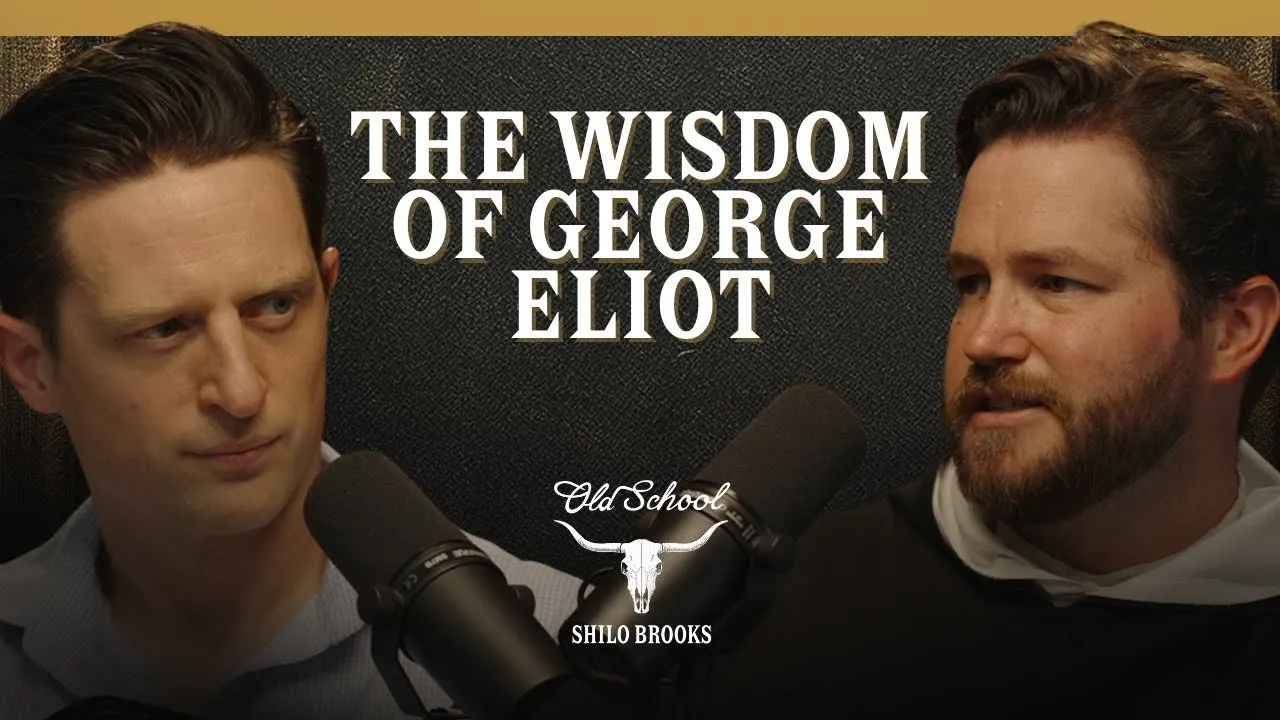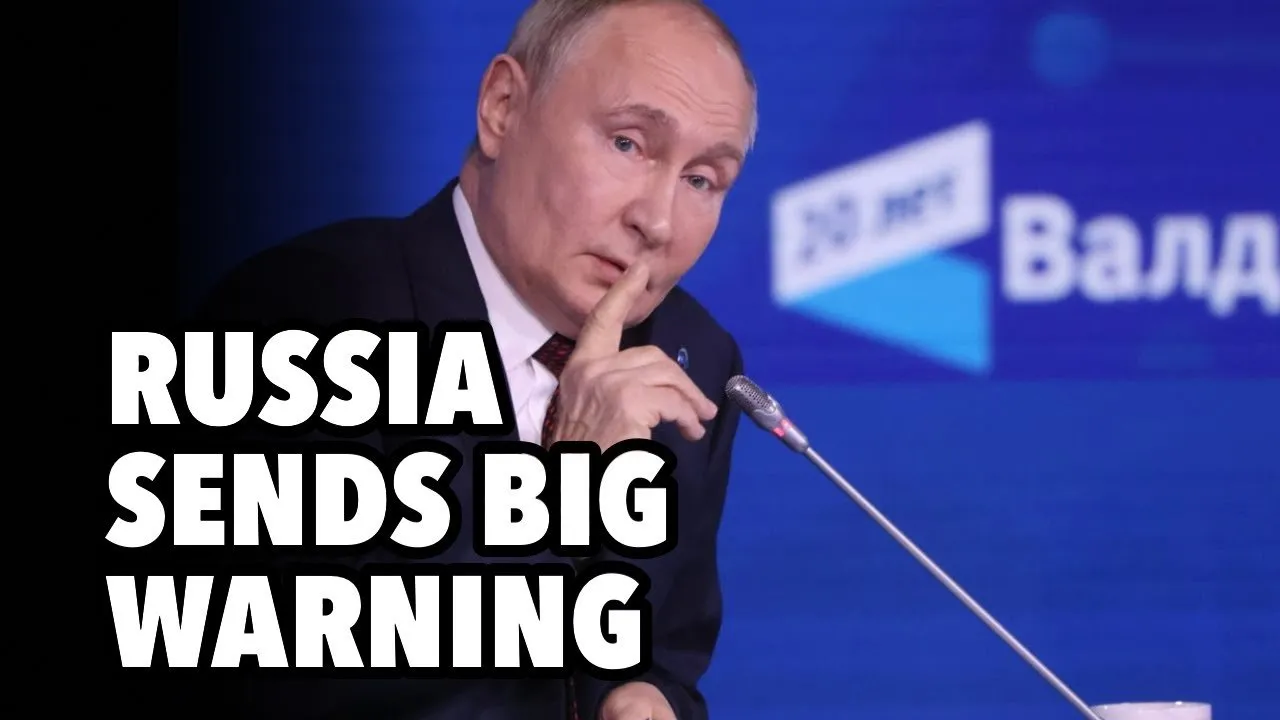Table of Contents
A seasoned conservative sounds the alarm about anti-Semitic and white nationalist ideologies infiltrating the right, targeting alienated young men through the same identity politics framework that defines the woke left.
Key Takeaways
- Conservative journalist Rod Dreher warns that right-wing identity politics is radicalizing young men through online spaces, creating a dangerous "woke right" movement
- Young white men, alienated by years of being told they're "what's wrong with the world," are susceptible to anti-Semitic and white nationalist messaging
- The phenomenon mirrors leftist wokeness by replacing classical liberal values with tribal identity politics, just coded in right-wing language
- Real families are being torn apart as sons become radicalized, with parents desperate for help but finding few trusted authorities willing to address the problem
- Unlike institutional wokeness on the left, this movement lacks power but requires immediate attention to prevent it from gaining institutional control
- The decline of robust religious faith has created a vacuum filled by toxic tribal ideologies on both left and right
- Parents must actively engage with their sons about online influences and provide positive alternatives to combat extremist messaging
The Origins of a Conservative Warning
Rod Dreher, author of the bestselling book "Live Not by Lies" about soft totalitarianism, has spent years documenting the dangers of leftist wokeness. His background as a conservative journalist spanning over three decades at outlets like National Review and the New York Post gives him credibility when warning about threats to traditional values. However, his latest concern focuses not on familiar enemies but on his own political tribe.
The inspiration for Dreher's warning came during promotional tours for his documentary about resisting totalitarianism. When audiences asked whether wokeness had peaked under Trump's return to power, Dreher recognized that the conditions Hannah Arendt identified as precursors to totalitarianism remained present. These conditions were now manifesting on the right among young men who felt systematically excluded and demonized by mainstream culture.
The Radicalization Pipeline Targeting Young Men
The "woke right" phenomenon specifically targets young men who have grown up hearing that their race and gender make them inherently problematic. These individuals, often very online and alienated from traditional institutions, become susceptible to messages that validate their experiences of discrimination and exclusion. The radicalization process offers what mainstream culture denies them: acceptance, solidarity, and a sense of purpose.
Bad actors including anti-Semites, racists, and white nationalists exploit this vulnerability by telling these young men "there's nothing wrong with you" and inviting them to join movements that promise belonging and meaning. The cost, as Dreher notes, is "your soul and your mind." This dynamic creates a dangerous feedback loop where legitimate grievances about reverse discrimination become gateways to genuinely toxic ideologies.
Real-World Consequences in Conservative Institutions
Dreher's warnings aren't theoretical. He shares the disturbing story of a teacher at his sons' classical Christian school who was secretly radicalizing students into white nationalism. Thomas Achord, who became headmaster, was exposed in 2022 as a virulent anti-Semite and racist operating under online pseudonyms. None of his colleagues, parents, or students suspected this double life until investigative reporting revealed his true activities.
One student radicalized by this teacher later obtained a high-ranking position in the Louisiana Republican Party before being involved in serious criminal activity. This case illustrates how the movement can infiltrate respectable conservative institutions through individuals who appear completely normal on the surface. The inability of well-meaning adults to detect these influences highlights the sophistication of modern radicalization techniques.
The Identity Politics Mirror
Critics like Chris Rufo argue that labeling right-wing extremism as "woke" creates false equivalencies and confuses the issue. However, Dreher maintains that the underlying logic is identical: both movements replace classical liberal standards for judging people and politics with tribal identity categories. Instead of elevating minorities, women, and LGBTQ individuals, the woke right prioritizes whites, men, and Christians while viewing everything through the lens of group identity rather than individual merit.
This parallel extends to the rejection of traditional conservative principles like race neutrality and judging people by character rather than demographic characteristics. The woke right adopts the same framework that conservatives have spent years opposing, simply changing which groups receive preferential treatment. This represents a fundamental corruption of conservative values that prioritizes tribal loyalty over moral principles.
The Institutional Power Differential
A key distinction between left and right-wing identity politics lies in institutional control. The woke left has captured universities, major media companies, Hollywood studios, and corporate HR departments. They can enforce their ideology through hiring practices, content policies, and educational curricula. The woke right currently lacks this institutional power, operating primarily in online spaces and fringe media outlets.
However, Dreher argues this power differential makes early intervention more crucial, not less. Waiting until right-wing extremists gain institutional control would make the problem much harder to solve. The goal is to prevent a future where anti-Semitic and white nationalist ideas become mainstream within conservative institutions, similar to how leftist wokeness captured liberal institutions over the past decade.
The Failure of Institutional Responses
One of the most troubling aspects of this phenomenon is the lack of trusted authorities willing to address it. Parents discovering their sons' radicalization find few resources within conservative religious and political leadership. Many leaders adopt a "no enemies to the right" attitude, viewing any criticism of extremist elements as undermining the broader fight against leftist wokeness.
This mirrors how decent liberals failed to stop the rise of wokeness in their own institutions. The justified anger at leftist excesses has created a blind spot where conservatives refuse to police their own movement. Church pastors avoid addressing the issue to prevent conflict, while political leaders focus entirely on opposing the left rather than maintaining standards within their own ranks.
The Religious Dimension
Dreher connects the rise of both left and right-wing extremism to the decline of robust religious faith in America. He argues that humans are inherently religious beings who will worship something, and when traditional faith declines, toxic ideologies rush in to fill the vacuum. This pattern appeared in 20th-century Germany and Russia, where declining Christianity created space for Nazism and communism to flourish.
Modern American Christianity has become too therapeutic and watered-down to provide young people with the sense of purpose and moral grounding they need. Instead of demanding sacrifice and accountability to higher principles, much of contemporary Christianity focuses on personal happiness and being nice to others. This leaves young people vulnerable to ideologies that offer more demanding but ultimately destructive forms of meaning and belonging.
Parental Responsibility and Practical Solutions
For parents concerned about their sons' online activities, Dreher recommends direct engagement rather than avoidance. Parents should ask what their children are listening to online, who they're following, and what messages they're receiving. Many "normal" families assume this problem couldn't affect their children, but the evidence suggests otherwise.
The conversation should acknowledge real injustices these young men face while providing positive alternatives to extremist messaging. Parents need to validate their sons' experiences of discrimination while explaining why identity politics represents a corrupted response. This requires offering constructive ways to fight back against unfair treatment that don't involve adopting the same toxic framework used by their opponents.
The Path Forward for Conservatives
Dreher advocates for immediate action to prevent right-wing extremism from gaining mainstream acceptance. This includes supporting figures like Chris Rufo, who fights wokeness from a classical liberal perspective rather than through counter-identity politics. The goal is to maintain conservative principles while effectively opposing leftist overreach.
The solution requires legislation to codify protections against discrimination, strategic activism that targets specific policies rather than entire groups, and moral leadership that maintains standards within conservative institutions. Most importantly, it demands the courage to confront extremist elements within the conservative movement rather than ignoring them in the name of unity against the left.
Common Questions
Q: How does right-wing identity politics differ from legitimate conservative concerns about anti-white discrimination?
A: The difference lies in adopting group-based thinking versus maintaining individual merit standards while addressing specific discriminatory policies.
Q: Why should conservatives worry about online extremism when the left controls most institutions?
A: Because extremist movements start small and online before gaining institutional power, making early intervention more effective than later resistance.
Q: How can parents identify if their sons are being radicalized by right-wing extremism?
A: Monitor online activities, ask about influences they're following, and watch for sudden changes in language or attitudes toward other groups.
Q: What role does declining religious faith play in political extremism?
A: Weak religious foundations create vacuums filled by toxic ideologies offering purpose and belonging through tribal identity rather than higher principles.
Q: How can conservatives fight wokeness without adopting similar tactics?
A: Through strategic activism defending classical liberal principles, legislation protecting merit-based standards, and moral leadership maintaining conservative values.
Rod Dreher's warning represents a crucial moment for conservative self-reflection. The movement must choose between maintaining its principles while fighting leftist overreach or adopting the same identity politics framework that has corrupted liberal institutions. The stakes extend beyond political strategy to the souls of young men and the future of American conservatism itself.





